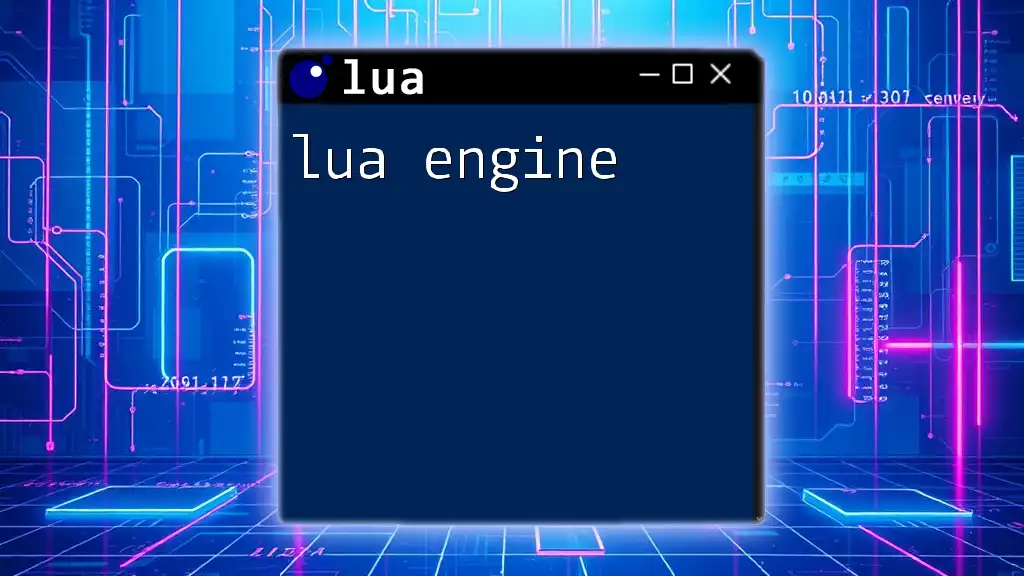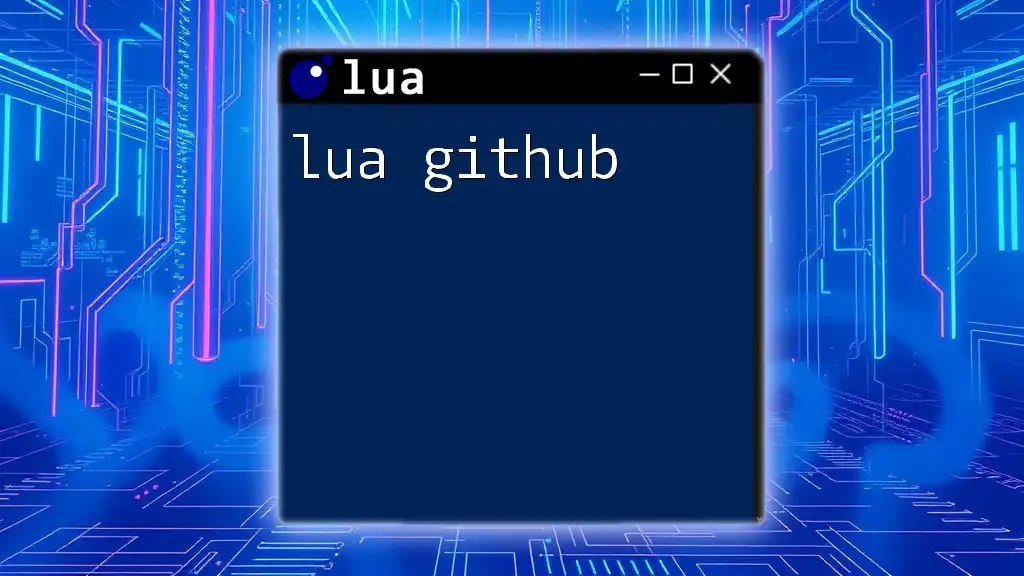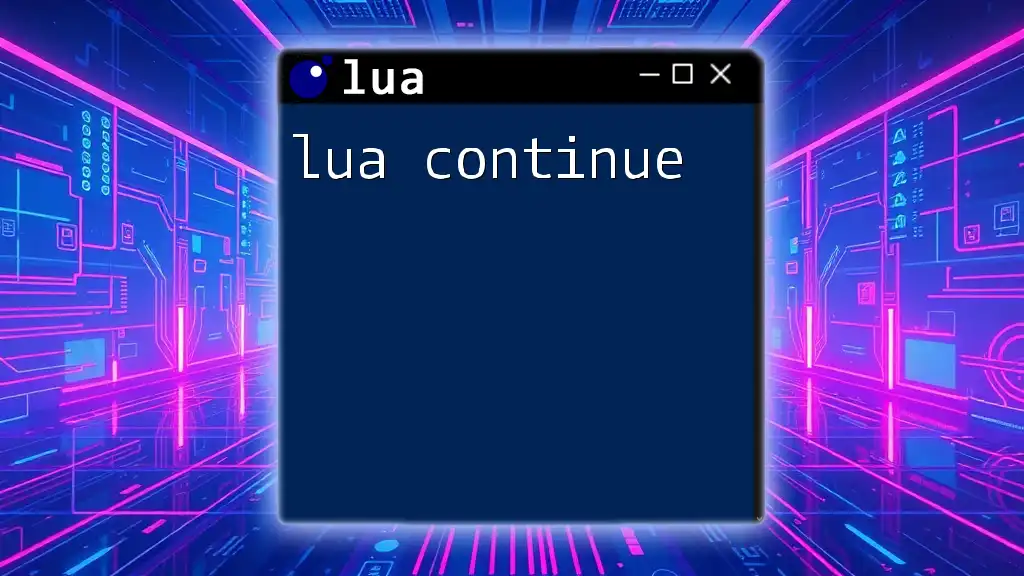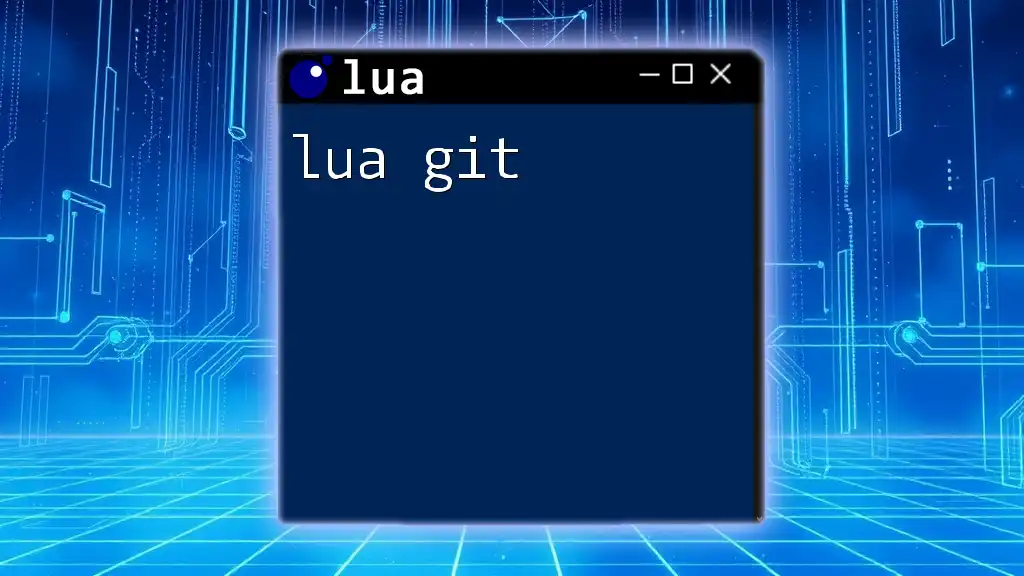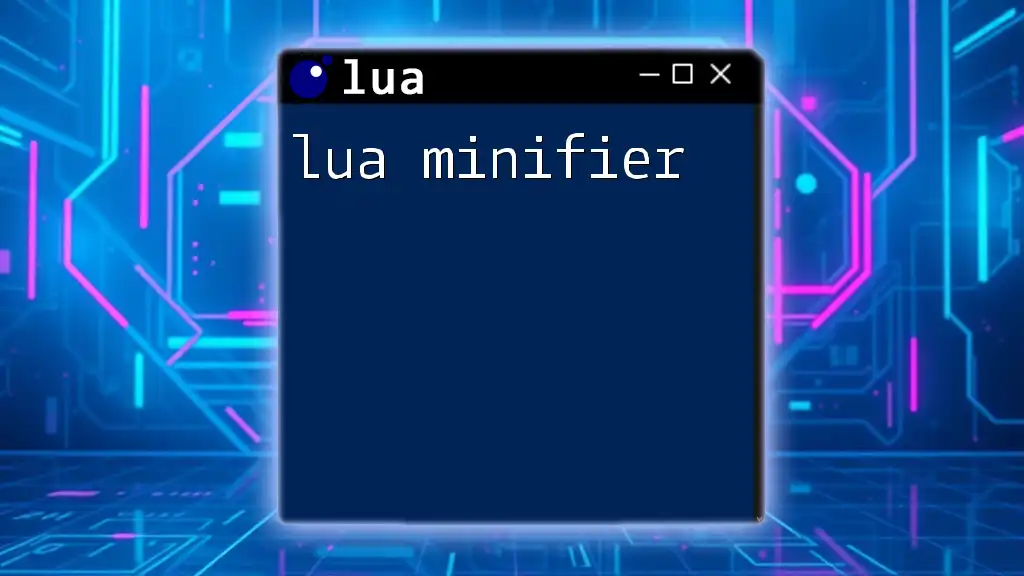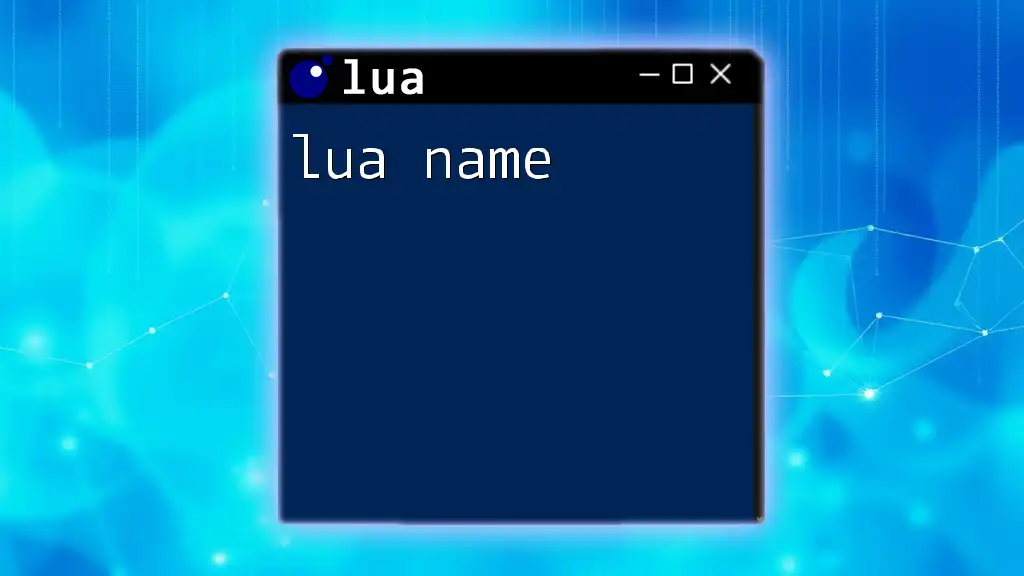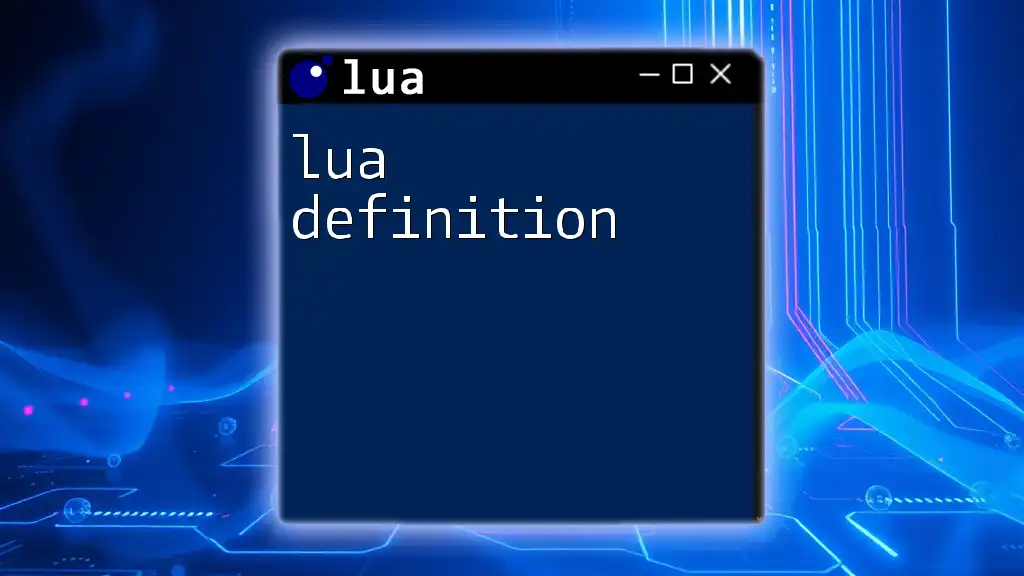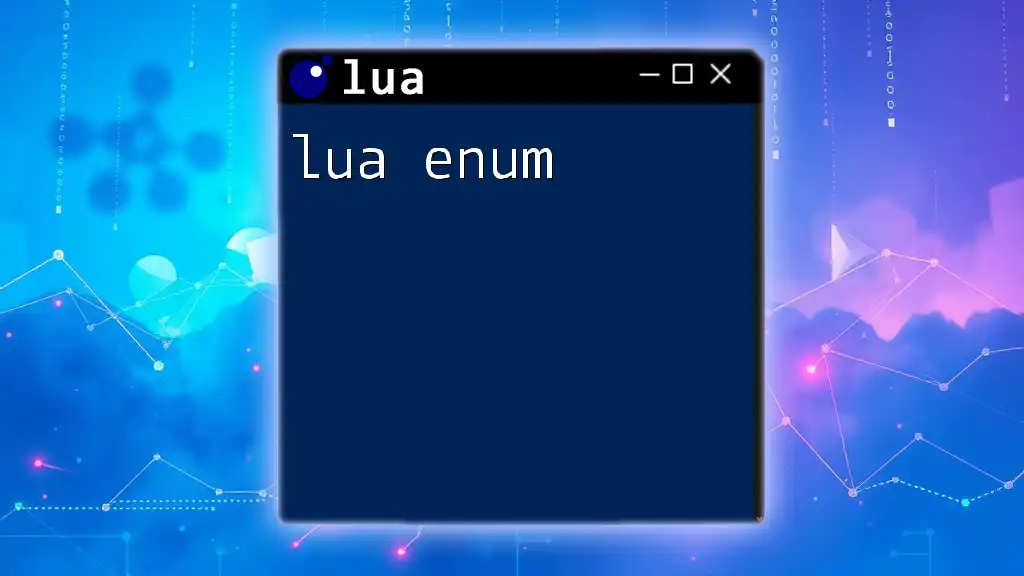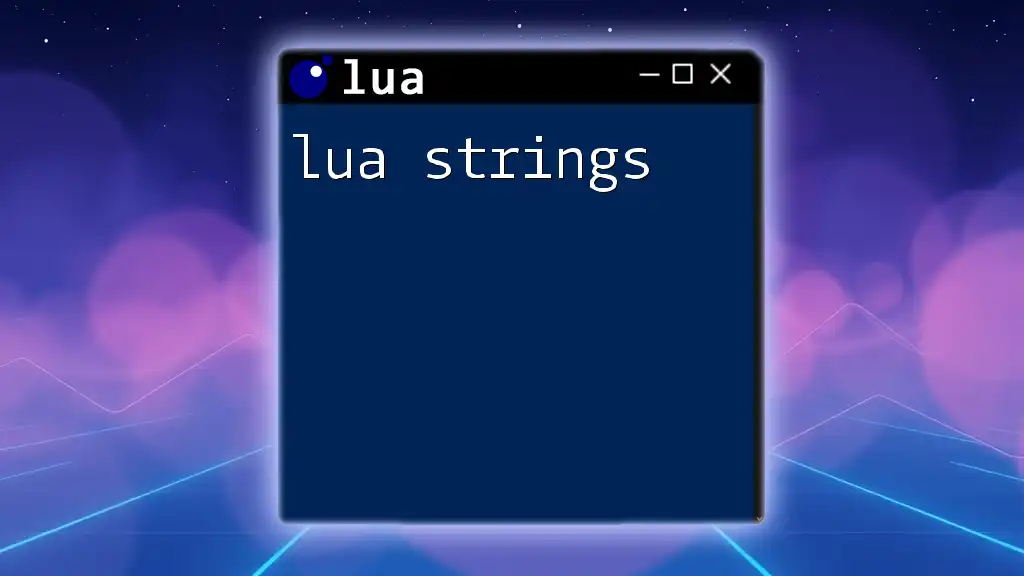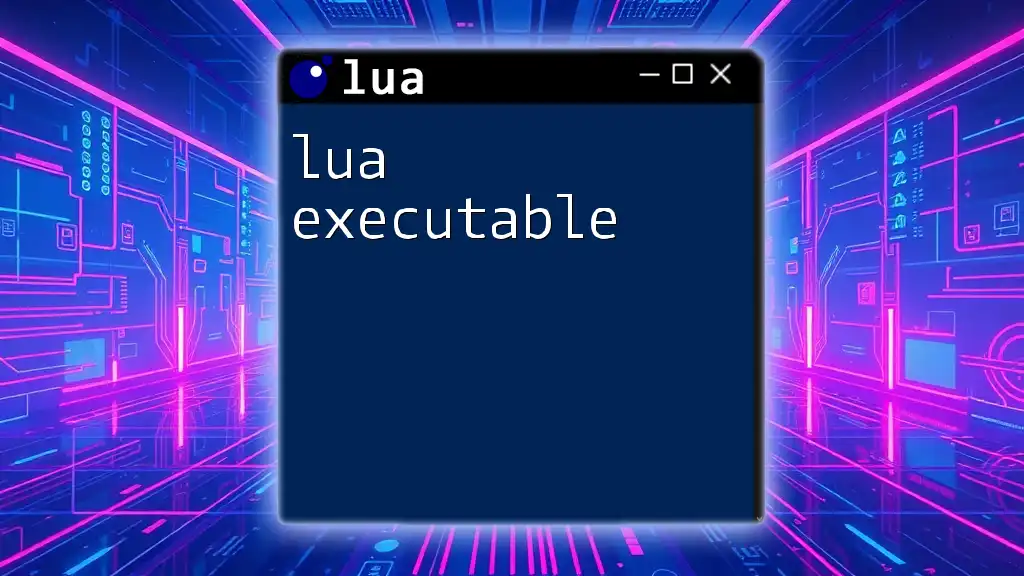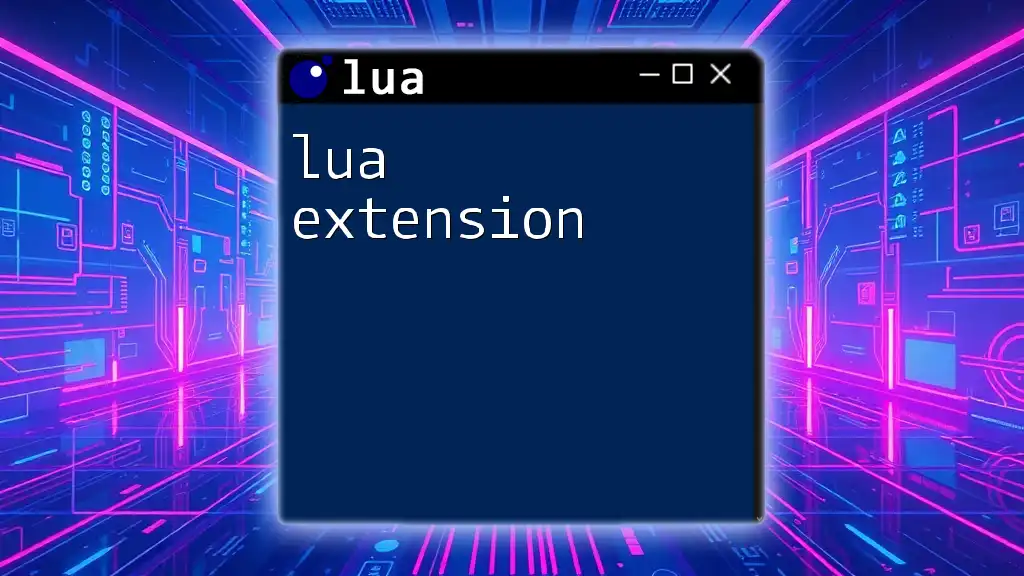The Lua engine is a lightweight, embeddable scripting language often used in game development and extends the capabilities of applications with dynamic scripting features.
-- Basic Lua script to print "Hello, World!"
print("Hello, World!")
Understanding the Lua Engine
What is the Lua Engine?
The Lua engine is a powerful, lightweight scripting engine designed for embedding in applications. Its ease of integration with C/C++ makes it exceptionally versatile for developers looking to introduce scripting capabilities into their software without sacrificing performance. By focusing on simplicity and flexibility, the Lua engine provides a reliable environment for dynamic content, making it a preferred choice in various fields, especially in game development and embedded systems.
Key Features of the Lua Engine
The Lua engine is distinguished by several key features:
-
Portability: Lua is highly portable, meaning it can run on virtually any platform, including Windows, macOS, and Linux. This means developers can use Lua across different environments without significant alterations.
-
Simplicity: With a minimalistic syntax, Lua is easy to learn for both beginners and experienced programmers. This simplicity allows developers to write concise code quickly.
-
Performance: The Lua engine is known for its rapid execution speed. Designed for performance, Lua scripts compile into bytecode, allowing for efficient execution within the Lua Virtual Machine (VM).
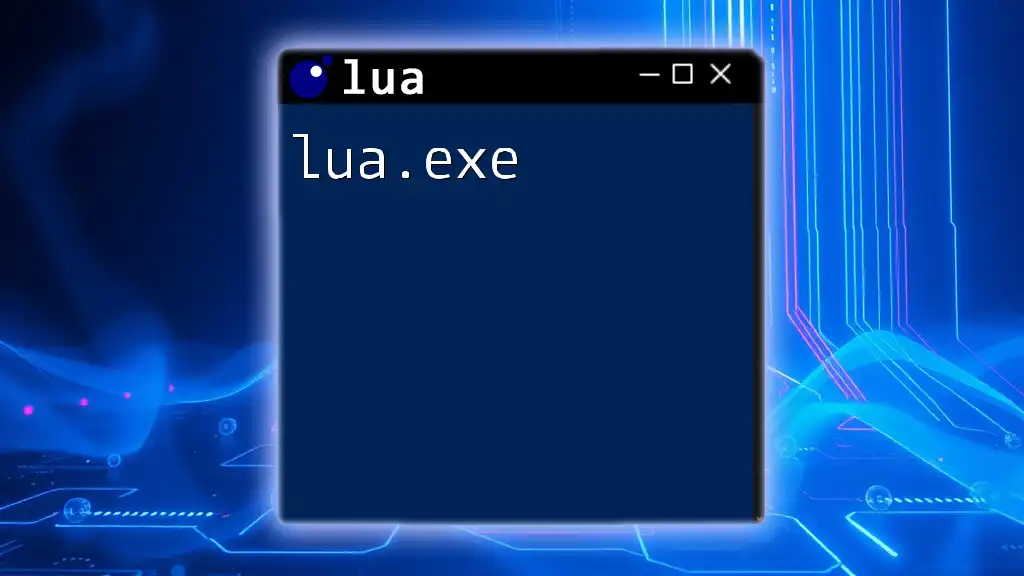
The Anatomy of the Lua Engine
Components of the Lua Engine
Understanding the components of the Lua engine is essential for effective use:
-
Lua VM (Virtual Machine): The Lua VM is at the heart of the Lua engine, interpreting and executing the compiled Lua bytecode. It is responsible for managing execution flow and memory.
-
Lua API: The Lua API allows developers to interface Lua scripts with C/C++ code, providing functions for manipulating Lua data types and executing Lua code from host applications.
-
Garbage Collection: Lua employs automatic memory management through its garbage collection mechanism. By tracking and reclaiming memory that is no longer in use, Lua helps prevent memory leaks and optimize resources.
Lua Data Types and Structures
Lua supports a variety of data types and structures:
-
Basic Data Types: Lua includes several basic data types, such as nil, boolean, number, string, and function. For example, a simple boolean can be defined as:
local isLuaAwesome = true -
Complex Data Structures: The primary complex data structure in Lua is the table, which functions as both an array and a dictionary. Tables can hold different types of data, making them extraordinarily flexible. Here's an example of a table:
local fruits = { "apple", "banana", apple = "red", banana = "yellow" }
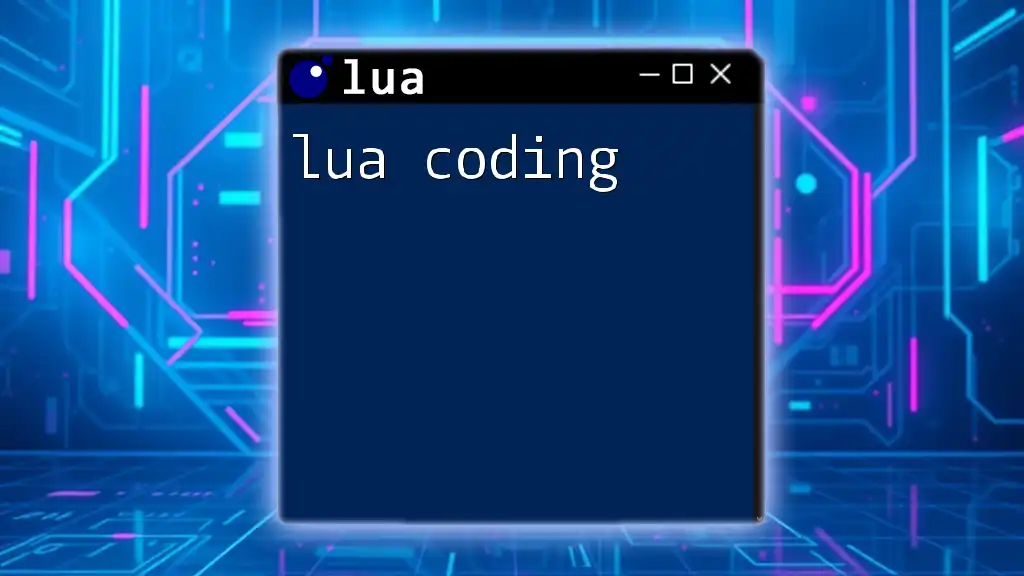
Setting Up the Lua Engine
Installation Guide
Setting up the Lua engine requires specific steps. Below are instructions for various platforms:
-
Windows:
- Download the Lua binaries from the official website.
- Extract the files and add the Lua directory to your system's PATH.
- Test the installation by running `lua -v` in the command prompt.
-
macOS:
- You can use Homebrew to install Lua. Run `brew install lua` in the terminal.
- Verify the installation by executing `lua -v` in your terminal.
-
Linux:
- Use your package manager, for example, `sudo apt-get install lua5.3` for Ubuntu.
- Check the installation using `lua -v`.
Environment Setup
To get started with Lua, it’s essential to configure a suitable development environment. Popular text editors like Visual Studio Code, Sublime Text, or Atom can be used. In these editors, you can enable Lua syntax highlighting and install extensions for code linting and debugging.
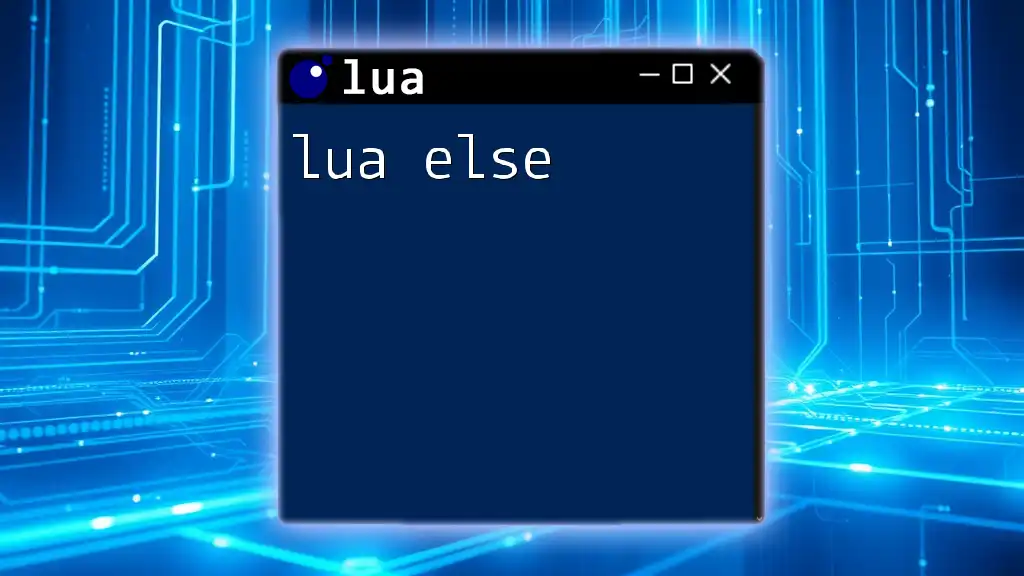
Core Lua Commands and Syntax
Basic Commands
Familiarizing yourself with basic Lua commands is crucial to getting started. Some essential commands include:
-
`print()`: Outputs text to the console.
print("Hello, World!") -
`io.write()`: Outputs text without adding a new line.
-
`type()`: Returns the data type of a variable.
Control Structures
Control structures allow for decision-making and iteration in scripts:
-
Conditional Statements: Lua supports various conditional statements, such as:
local number = 10 if number > 0 then print("Positive Number") else print("Negative Number or Zero") end -
Loops: Looping constructs in Lua include:
- `for` loop:
for i = 1, 5 do print(i) end- `while` loop:
local count = 1 while count <= 5 do print(count) count = count + 1 end- `repeat...until` loop: Executes until a condition is satisfied.
Functions and Modules
Functions encapsulate reusable code. Here's how to define a function:
function add(a, b)
return a + b
end
local result = add(5, 3)
print(result) -- Outputs: 8
Modules provide a way to organize and share code. To create a module:
-- mymodule.lua
local mymodule = {}
function mymodule.greet(name)
return "Hello, " .. name
end
return mymodule
And you can use this module in another Lua script:
local mymodule = require("mymodule")
print(mymodule.greet("John")) -- Outputs: Hello, John
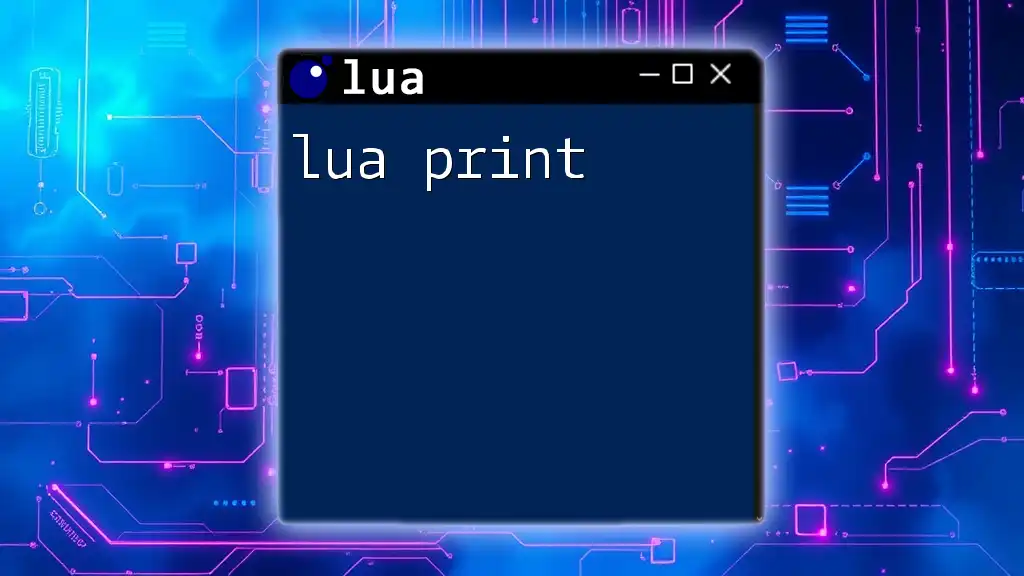
Practical Applications of the Lua Engine
Game Development with Lua
The Lua engine is immensely popular in game development, finding a home in engines like Love2D and Corona SDK. These engines leverage Lua to enhance game logic and responsiveness without needing to alter the engine's source code.
For instance, a simple game script in Love2D can look like this:
function love.load()
player = { x = 100, y = 100 }
end
function love.update(dt)
player.x = player.x + 100 * dt -- Moves player right
end
function love.draw()
love.graphics.rectangle("fill", player.x, player.y, 50, 50)
end
Scripting in Applications
Lua is also used in applications like Adobe Lightroom and World of Warcraft to provide customization and extensibility through scripts. For instance, in WoW, Lua scripts are used to create addons that enhance gameplay.
An example script that adds a custom command might look like this:
SLASH_HELLO1 = "/hello"
function SlashCmdList.HELLO(msg, editBox)
print("Hello from Lua!")
end
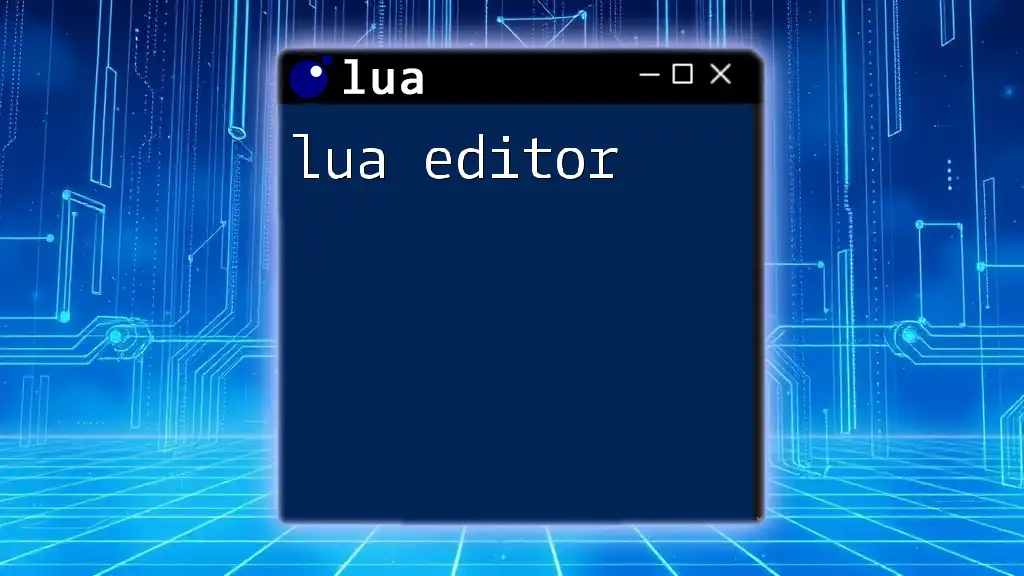
Debugging and Error Handling
Common Errors in Lua
When working with the Lua engine, developers may encounter various errors such as:
- Syntax errors: Often caused by missing symbols or incorrect structure.
- Runtime errors: Occurring from operations on invalid values, such as trying to perform arithmetic on a string.
Debugging Techniques
Effective debugging is essential for successful scripting. Lua provides a debug library for tracing and troubleshooting issues. You can use functions like `debug.traceback()` to get more details when a script encounters an error, helping you pinpoint the source of the problem.
function example()
error("An error occurred!")
end
xpcall(example, function(err)
print("Error: " .. err)
print(debug.traceback())
end)
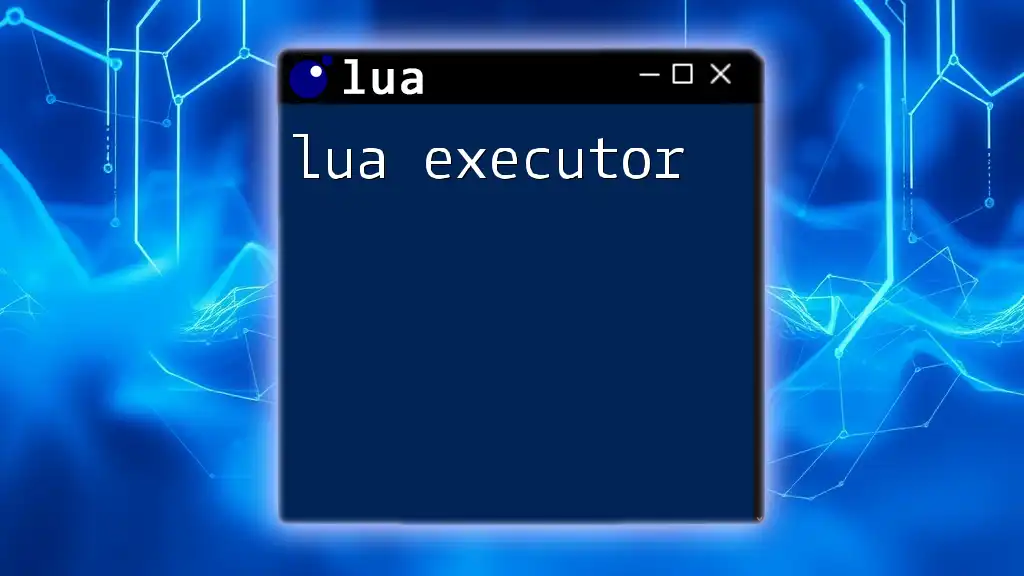
Conclusion
The Lua engine offers remarkable flexibility and efficiency, making it a valuable tool for developers across various fields. By mastering its components, commands, and practical applications, developers can leverage the full potential of Lua for scripting and beyond. As you embark on your journey with the Lua engine, continual learning and exploration will enrich your development skills and open new opportunities in programming.
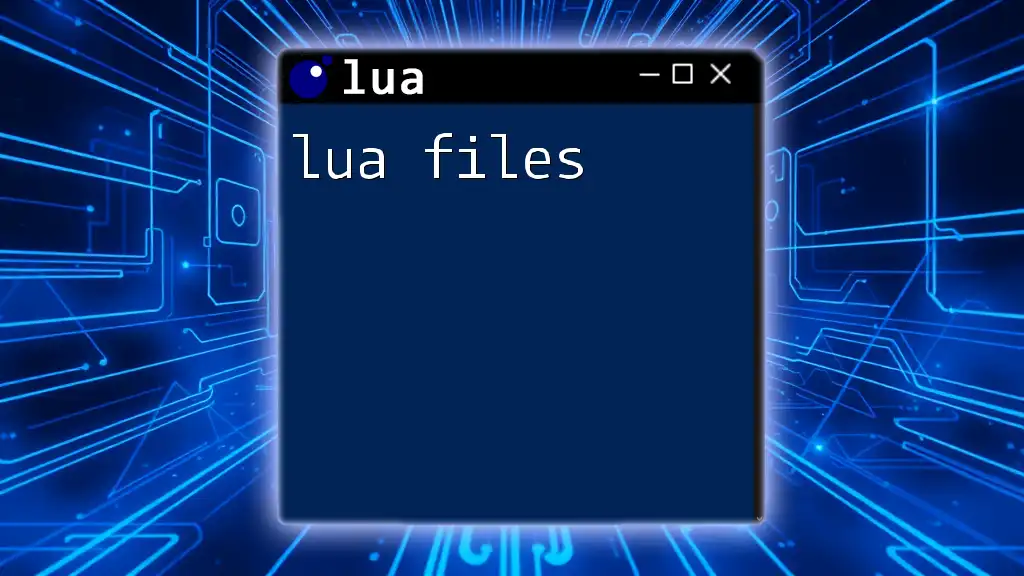
Additional Resources
For those seeking further knowledge, consider investing time in resources such as:
- Books: Look for comprehensive texts on Lua programming.
- Online Courses: Platforms like Coursera or Udemy offer structured learning.
- Documentation: The official Lua website and community forums provide invaluable assistance and updates.

Call to Action
Now that you have a deeper understanding of the Lua engine, we encourage you to share your experiences with Lua and consider joining our teaching community for advanced insights and mastery of Lua commands. Happy coding!

